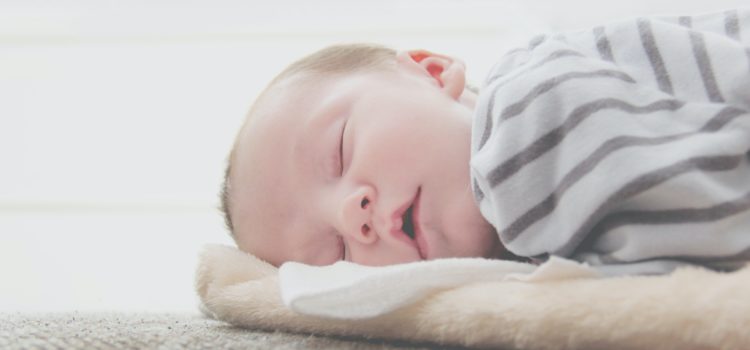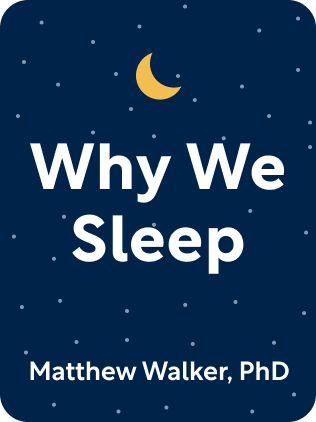

This article is an excerpt from the Shortform summary of "Why We Sleep" by Matthew Walker. Shortform has the world's best summaries of books you should be reading.
Like this article? Sign up for a free trial here .
Did you know that sleep changes with age? And that the way you sleep is your response to your physiological needs?
There’s no doubt that sleep changes with age; babies sleep differently than teenagers, who sleep differently than adults. The way sleep changes with age is an important part of how human sleep works. Read more below.
How Sleep Changes With Age
It’s common knowledge that sleep changes with age. You probably know that you sleep differently now than you did as a baby or teenager. But why?
Babies
Fetuses spend almost all of the time in a sleep-like state. It doesn’t yet have the part of the brain that causes muscle-atonia during sleep, thus explaining why babies in the womb kick and punch.
During the last 2 weeks of pregnancy, REM sleep in fetuses ramps up to 12 hours a day. This causes rapid synaptogenesis and building of neural pathways throughout the brain. In experiments with rat fetuses, disturbing REM sleep stalls construction of the cerebral cortex.
Alcohol impedes REM sleep in fetuses and babies, causing abnormal synaptogenesis. Once disrupted, a fetal brain may never fully regain normal function.
- Newborns of alcoholic mothers spend far less time in REM sleep.
- 2 drinks reduce REM sleep and breathing rate in unborn infants.
- When babies drink milk containing alcohol, their REM sleep reduces by 30%.
Because REM sleep is involved in emotional recognition and social interaction, disrupting REM sleep in utero might contribute to autism spectrum.
- Autistic people show 30-50% less REM sleep than normal.
- Rats deprived of REM sleep develop into socially withdrawn adults.
Childhood
While starting with very irregular sleep, babies eventually show more regular sleep patterns starting at 4 months, as their suprachiasmatic nucleus and circadian rhythm develop. This is one example of how sleep changes with age.
With age, total time sleeping decreases, and the fraction of REM sleep decreases. Now that the synaptogenesis of REM tapers off, NREM plays a larger role in brain refinement, pruning the associations that are most valuable unique to that child’s life.
Consider NREM to actually cause cognitive development – changes in deep NREM sleep precede cognitive milestones, and the last maturation is in the frontal lobe, dealing with rationality.
Caffeine exposure during childhood could reduce NREM sleep, delaying brain maturation and learning.
Teens
In puberty, teens develop a later biological clock than adults, preferring to stay up later and wake later. This isn’t just teens being rebellious – it’s in their biological nature. Asking teens to sleep at 10PM is like asking adults to sleep at 7PM.
The author theorizes that this is evolutionarily helpful for teens to gain independence from their parents (having time to be awake while their parents are sleeping). Moreover, teens do so collectively, and so they get private time to socialize.
Unfortunately, in the modern day, schools start at a very early hour (largely to match the circadian rhythms of adult parents). It’s far out of sync with the natural circadian rhythm of teens, so they tend to sleep late and wake up far earlier than they naturally would.
Considering all this, if you’re a parent, there’s no need to get frustrated at your teenage kid for seemingly being lazy and sleeping too much, when the environment is heavily geared against their biological tendencies.
How Sleep Changes With Age in Adulthood
Unfortunately, sleep changes with age aren’t always welcome. Sleep quality starts deteriorating in the late 20s, with deep NREM sleep becoming impaired in length and power. In your late 40s, you’ll have lost 70% of deep sleep as a teenager; by 70, you’ll have lost 90% of deep sleep. Unfortunately, less NREM sleep worsens the ability to cement new memories in older people.
You often hear of the elderly sleeping little at night, so the natural conclusion is that the elderly just need less sleep. But this could be a myth. The elderly might be sleeping less because they’re unable to sleep for as long. This means they could still benefit from more sleep.
Seniors have three things going against them: 1) they sleep less, 2) they have less efficient sleep, and 3) they want to sleep earlier. This is caused by:
- Degeneration of the mid-frontal cortex that generates sleep
- Circadian rhythm shifting to earlier times
- Weakened bladders causing night interruptions
Exacerbating this are:
- We’re generally unable to determine our sleep quality after sleeping. So when seniors sleep poorly and feel unhealthy, they don’t realize they need to improve their sleep quality. They chalk it up to insomnia.
- Because the elderly sleep poorly, they feel tired during the day, and doze off in the early evening. Unfortunately, this reduces the adenosine sleep pressure at night, which causes them to have trouble falling asleep later. Then, their early circadian rhythm wakes them up before they can get a full night’s rest. This causes a vicious cycle of poor sleep.
All this causes lower sleep efficiency – people in their 70s have 80% sleep efficiency, meaning they stay awake in bed for 1.5 hours when trying to sleep 8.
There are a few ways to get around this:
- Melatonin helps strengthen the desire to sleep in elderly people. It reduces time to falling asleep and improves reported sleep quality.
- Seniors who want to push their circadian rhythm back should get bright-light exposure in the late afternoon, not in the mornings.
There’s no doubt that sleep changes with age. Knowing that sleep changes with age can help you adjust your sleep patterns throughout your life.

———End of Preview———
Like what you just read? Read the rest of the world's best summary of Matthew Walker's "Why We Sleep" at Shortform .
Here's what you'll find in our full Why We Sleep summary :
- Why you need way more sleep than you're currently getting
- How your brain rejuvenates itself during sleep, and why nothing can substitute for sleep
- The 11-item checklist to get more restful sleep today






